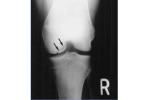What are My Options for Cartilage Surgery?

Cartilage transplant, also known as cartilage transplantation or cartilage repair surgery, is a surgical procedure aimed at repairing damaged or injured cartilage in joints, typically the knee. Cartilage transplant procedures are used to treat conditions such as cartilage defects, osteochondral lesions, and early-stage arthritis. There are several types of cartilage transplant procedures, including:
-
Autologous Chondrocyte Implantation (ACI): In ACI, healthy cartilage cells (chondrocytes) are harvested from a non-weight-bearing area of the patient's own knee through arthroscopic surgery. The harvested cells are then cultured and grown in a laboratory to increase their numbers. In a second surgical procedure, the cultured chondrocytes are implanted into the damaged area of the knee joint and covered with a patch or membrane to promote healing.
-
Osteochondral Autograft Transplantation (OATS): In OATS, healthy cartilage and bone tissue (osteochondral plugs) are harvested from a non-weight-bearing area of the patient's own knee and transplanted into the damaged area of the joint. This procedure is particularly suitable for smaller cartilage defects.
-
Osteochondral Allograft Transplantation: In this procedure, cartilage and bone tissue are harvested from a donor and transplanted into the damaged area of the recipient's joint. Allograft transplantation is typically used for larger cartilage defects or in cases where autologous tissue is not available or suitable.
-
Matrix-Assisted Chondrocyte Implantation (MACI): MACI is a newer technique that combines the principles of ACI with the use of a biocompatible scaffold or matrix to support the growth and implantation of chondrocytes into the damaged area of the joint.
Cartilage transplant procedures are typically performed arthroscopically, using small incisions and specialized instruments, which may result in shorter recovery times and reduced risk of complications compared to traditional open surgery. However, recovery from cartilage transplant surgery can still be lengthy, often requiring a period of restricted activity, physical therapy, and rehabilitation to optimize outcomes and restore joint function.
Cartilage transplant procedures are generally considered for younger, active patients with isolated cartilage defects or injuries who have failed conservative treatments such as physical therapy, medications, and injections. However, the success of cartilage transplant surgery depends on various factors, including the size and location of the cartilage defect, the patient's age and overall health, and adherence to post-operative rehabilitation protocols. It's important to consult with an orthopedic surgeon or sports medicine specialist to determine if cartilage transplant surgery is appropriate for your specific condition.



